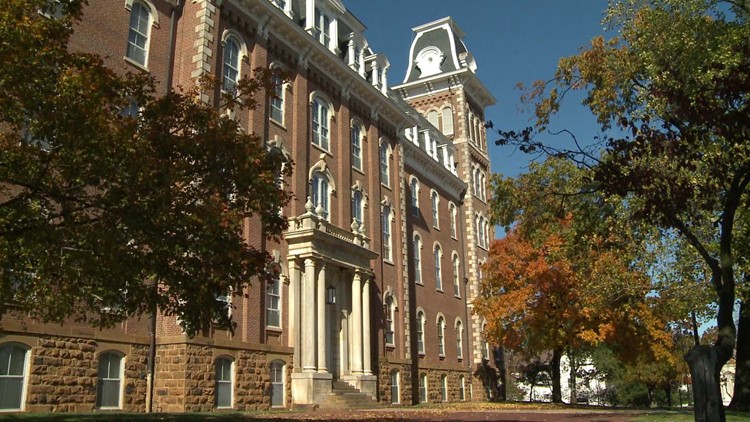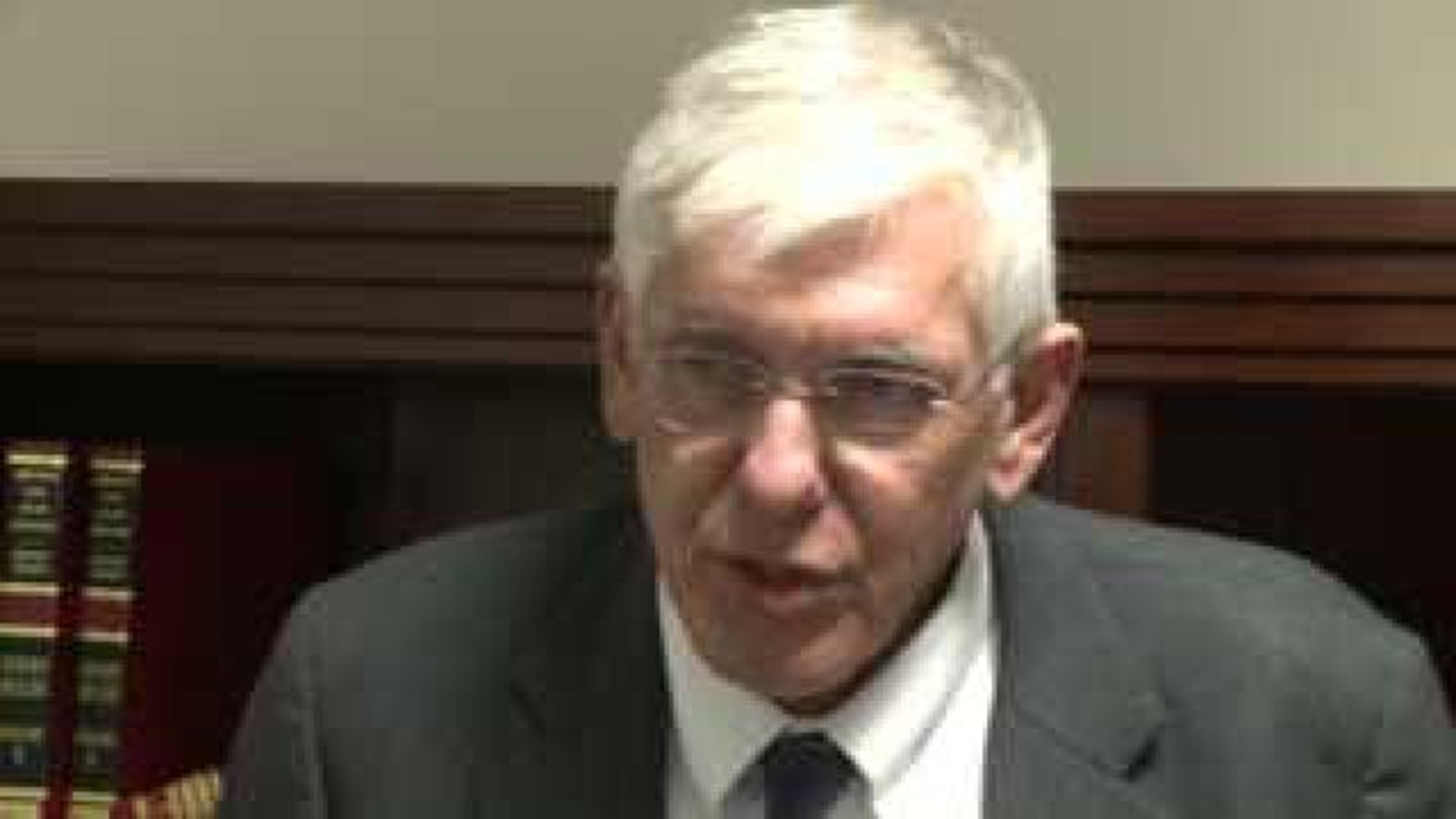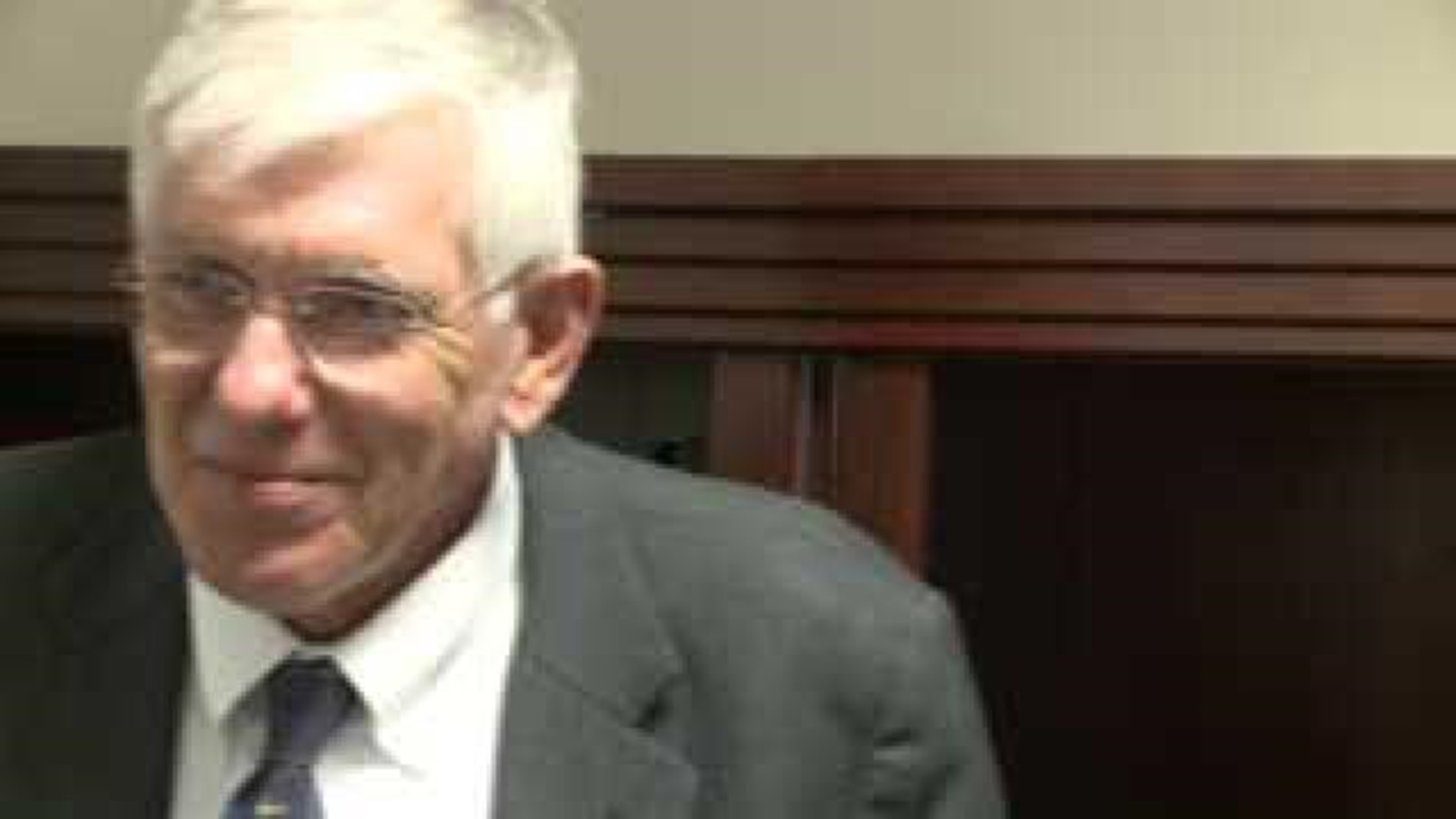Fourteen state legislators are urging the Washington County prosecutor to further review the University of Arkansas’ $4.2 million shortfall from last fiscal year, specifically citing the possibility that a UA official lied to legislators about an internal investigation.
Arkansas Rep. Nate Bell (R-Mena) writes in a letter to prosecutor John Threet that he is concerned Donald Pederson, UA vice chancellor for finance and administration, may have lied to the Legislative Audit Committee about the university’s finances during an audit, before the multi-million-dollar shortfall came to public light.
In an internal review of the UA’s $4.2 million shortfall, the university’s vice chancellor for financial affairs reportedly wrote a letter to Pederson in which she references the “likelihood of conflict of interest violations, intentional effort to disguise, misdirection of funds, risk of fraudulent activity, (and) deliberate efforts to disguise.”
Bell contends that the letter was dated Oct. 19, six days before Pederson allegedly told legislative auditors that he had no knowledge of any allegations of suspected fraud associated with the UA’s money situation.
The letter to Threet states that Pederson at the time signed a document stating, “We have no knowledge of any allegation of fraud or suspected fraud affecting the entity.”
Deputy prosecutor David Bercaw told 5NEWS that Threet’s office had not received Bell’s letter, as of Wednesday afternoon.
Threet’s office released their findings last week in an investigation into the university’s financial shortfall. While Bercaw found the UA practiced undisciplined and damaging money practices, the prosecutor said he found no evidence of any intentional wrongdoing or criminal activity. No money slated for expenses went missing; the UA’s Division of Advancement just spent too much money, although all for legitimate expenses, his investigation found.
Bell states in his letter to Threet that he does not challenge the prosecutors’ decision not to seek criminal charges in the UA finances case, but said he hopes they examine Pederson for possibly lying to legislators during the audit on the money, a potentially criminal offense.
Bercaw released a statement Dec. 12 stating that the prosecutor’s office had interviewed 17 UA officials to determine if there was any wrongdoing in the University Advancement Division’s budget issues, in which a state legislative audit found the university exercised no “proper fiscal oversight.”
“We did not find evidence of criminal activity in this matter. It is a very unfortunate situation of a breakdown of internal control within the Advancement Division,” Bercaw writes. “We strongly recommend that the university implement all recommendations of the Legislative Audit.”
The legislative audit had found that university officials did not comply with university fiscal policies and continued to spend millions more, even as the revenue stream stayed the same.
Bercaw said the fact that no money was actually missing and all of the deficit money was spent on legitimate Advancement Division purchases contributed to his finding that no criminal activity was committed.
(See 5NEWS’ full interview with deputy prosecutor David Bercaw in the two videos below the story)
UA Chancellor G. David Gearhart released a statement the same day the investigation’s findings were released, saying, “I am grateful to the office of the prosecutor for conducting a thorough investigation into the matters referred by the Legislative Joint Auditing Committee. We accept the conclusions of the report, are reviewing the recommendations from the office of the prosecutor, and are actively implementing the recommendations of Legislative Audit. We look forward to visiting with the committee at tomorrow’s meeting.”
The Washington County Prosecutor’s Office investigation began in September after Roger Norman, legislative auditor for the state auditing committee, referred four issues to the prosecutors in the case of the UA budget shortfall.
“His letter referenced (potential) tampering with public record (charges)…although I did not consider us limited to that specific charge if our examination revealed other potential charges,” Bercaw states.
One of the issues concerns a $1.57 million gift to the university from the Tyson Family in 2011, to be used in the construction of the Jean Tyson Child Development Study Center. Instead of placing the money in a restricted fund for the center, former budget administrator Joy Sharp, who later lost her job, in 2012 placed the money in an unrestricted fund that went to the University Advancement division, which was running a multi-million-dollar deficit, Bercaw’s notes show.
The prosecutor’s findings state the redirection of the money was not intentionally carried out to cover the deficit of the Advancement Division, since the amount would not cover the deficit and Sharp had nothing personally to gain.
Bercaw’s findings seemingly contradict a UA treasurer’s conclusion, that Sharp transferred the money in “an intentional effort to disguise a prior year’s accounts receivable balance that had not been cleared.”
Bercaw’s notes state, “(E)veryone we spoke to about Ms. Charp believes her to be an honest person who was overwhelmed by her job duties. We conclude that Ms. Sharp had the opportunity to commit fraud but did not do so.”
The money ended up not actually being spent while classified as unrestricted funds, Bercaw states.
Another issue raised by the legislative committee included a $2,052 reimbursement payment made to former administrator Brad Choate that revealed a duplicate payment.
Choate, the Advancement’s Division’s former vice chancellor, lost his job earlier this year due to the budget issue, along with Sharp, former chief financial officer and budget director for the division, a UA official told 5NEWS. The official said Choate was told to find another job by the beginning of the 2014 fiscal year, which started in July.
Sharp was initially docked $30,000 in pay following the budget shortfall.
In reference to Choate’s reimbursement, stemming from costs of a year-end fundraising celebration at the Fayetteville Country Club, Bercaw finds, “It does not appear that the duplicate payment was anything more than an error given that one payment went to the vendor, one payment went to Mr. Choate, Mr. Choate reimbursed the university for the duplicate payment, and that it was found that the university owed Mr. Choate substantially more in reimbursed expenses.”
The third issue raised by the legislative committee that was then investigated by prosecutors concerned the reversal of more than $4 million in recorded deficits, in June 2011 and June 2012.
“(S)taff ascertained that the treasurer’s office posted an Advancement account receivable of $3.2 million. However, the Foundation confirmed that it did not record a corresponding account payable to Advancement for this amount as of June 30, 2013,” the prosecutor’s note states.
The fourth issue concerned testimony by former UA spokesman John Diamond, in which the former official accused Gearhart of ordering the destruction of budget-related documents.
The prosecutor collected from Diamond his university-issued laptop computer, an iPad and two cell phones, Bercaw states.
Diamond, the UA’s former associate vice chancellor for University Relations, was fired in August following a heated meeting with university administrators concerning the UA’s response to media public records requests, Diamond said after being fired.
“There is no question in my mind that the disillusionment that Dave Gearhart had with me had to do with my attempt to follow the [Freedom of Information Act] law and dealing with the media in general,” Diamond said.
He was contacted by telephone after the briefing held in Gearhart’s office in Fayetteville, which included Chris Wyrick, Diamond’s immediate supervisor, and at least six other UA officials.
Diamond later told a legislative panel in September that Gearhart ordered the destruction of documents related to the school’s Advancement Division. Gearhart denied Diamond’s claims and said they were coming from a disgruntled former employee.
Bercaw’s investigation found there was no evidence that Gearhart ordered the destruction of any documents associated with the prosecutors’ query or the budget audit. Some hard-copy documents were shredded as part of a cost-saving measure by the Advancement Division, Bercaw found.
Concerning a public records request by local media for financial activity documents, Bercaw finds that administrators attempted through their best efforts to fulfill the records request, and despite some documents being destroyed, “We did not find evidence that the Foundation Payment Authorization Forms were disposed of with the intent to frustrate the audit or to frustrate any FOIA requests.”
Timeline Of The UA’s $4.2 Million Budget Shortfall
November 2012 – The University of Arkansas announces that two campus officials have been re-assigned after mismanaging the University Advancement Division’s $10 million budget, to the tune of at least $3.1 million. The two officials were later revealed to be vice chancellor Brad Choate and budget manager Joy Sharp, both of whom later lost their jobs.
December 2012 – The university announces plan to use reserve funds to cover the shortfall.
January – The UA decides against implementing a gift tax to cover the lost money, which was estimated at the time to be $4.3 million.
February – UA Chancellor G. David Gearhart requests an audit from state officials and the University of Arkansas System to determine how the Advancement Division’s budget was mismanaged. “The university has been transparent and accountable about this situation,” Gearhart said at the time.
July – The UA’s Advancement Division undergoes major staff changes, including the firing of Brad Choate and Joy Sharp. Bruce Pontious resigns and is replaced as associate vice chancellor for university development by Mark Power.
August – UA spokesman John Diamond fired after heated meeting with administrators allegedly about public records requests by the media concerning the budget shortfall.
September – Former UA spokesman John Diamond, in testimony to a state committee, accuses Chancellor G. David Gearhart of ordering budget documents to be destroyed following the $4.2 million Advancement Division shortfall.
September – State audit finds the university did not follow “proper fiscal oversight” in the management of the Advancement Division’s money. Chancellor G. David Gearhart tells 5NEWS the budget problems were mismanagements, but were not intentional.
November – FBI and local prosecutors begin investigation into the UA’s budget shortfall to determine if any laws were broken.
December – Prosecutor finds no criminal activity associated with the Advancement Division money problems, but finds several financial discrepancies and instances of money mismanagement. Investigation documents state the university misplaced a $1.5 million Tyson gift and accidentally put the money in the Advancement Division, instead of using it to construct a child center, as had been the purpose of the gift.





